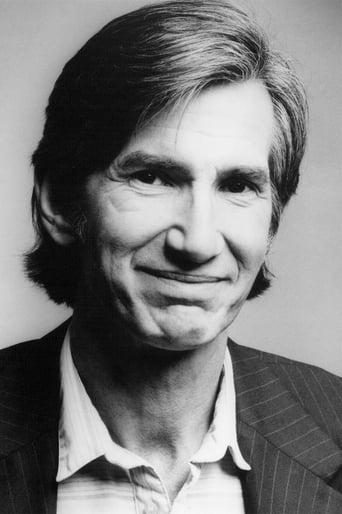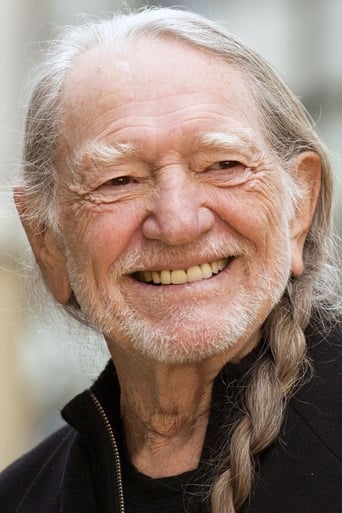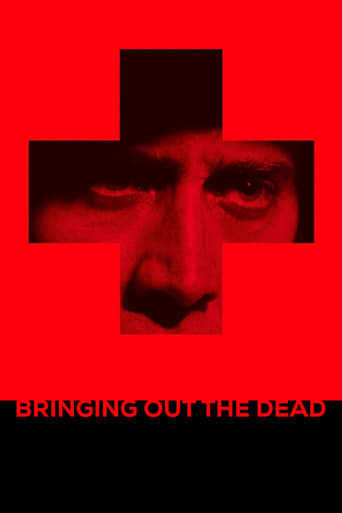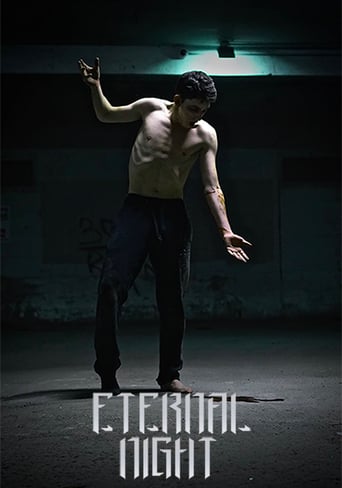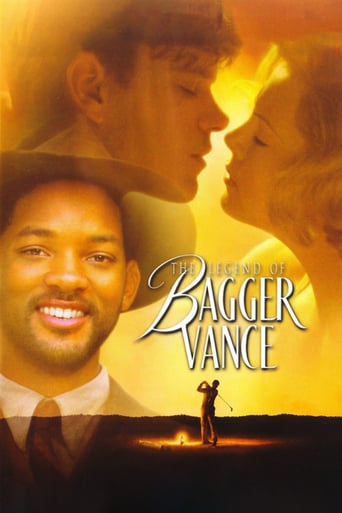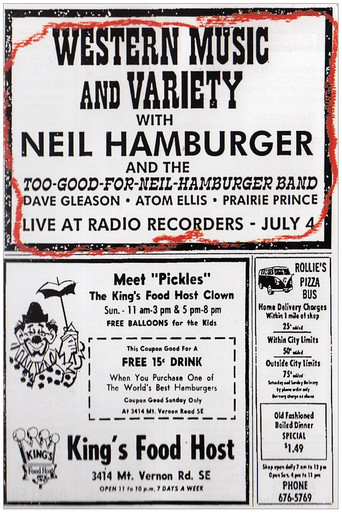
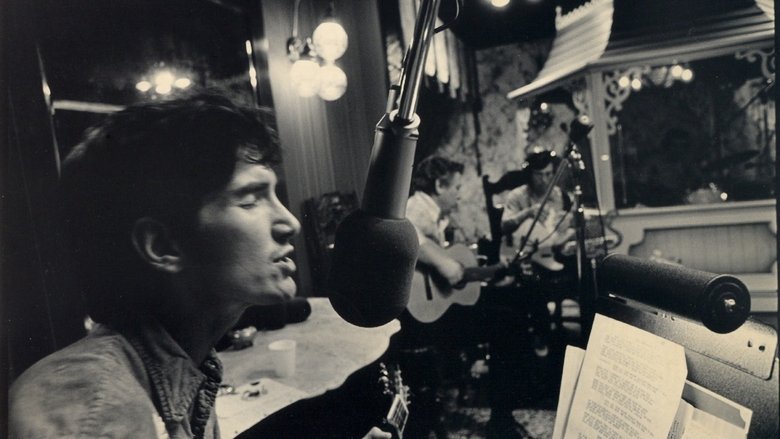
Be Here to Love Me (2004)
Chronicles the fascinating and often turbulent life of Townes Van Zandt.
Watch Trailer
Cast
Similar titles

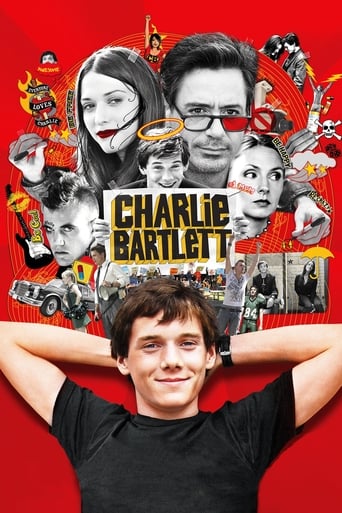
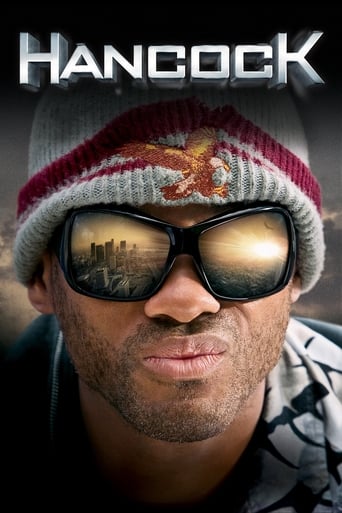
Reviews
It is not deep, but it is fun to watch. It does have a bit more of an edge to it than other similar films.
It's a movie as timely as it is provocative and amazingly, for much of its running time, it is weirdly funny.
By the time the dramatic fireworks start popping off, each one feels earned.
This film is so real. It treats its characters with so much care and sensitivity.
I'd not heard van Zandt before discovering this documentary. A lonely soul, in interview commenting on a statement that many of his songs are sad, saying "they're not all sad...some are hopeless", seemingly without irony.A slew of known musicians gather to comment on van Zandt's visions, his problems with alcohol and of how he has influenced people. At the same time, the filmmakers have told a straightforward tale of a man haunted.This documentary turned me on to van Zandt's music, and his legacy is apparently notable within the country and folk music fold. I'll recommend it not only for music fans. van Zandt came from a period in time where country and folk met with more modern ages, the 1950s merging into the 1960s, where alcohol met other drugs and lyrics changed.
Woah! Had to chop several chunks of my full review to make it fit into the 1000 word limit. I read every word of every review at time of posting and I'm slightly disgusted by seeing only 18 reviews 5 years after release and that the writing is not more persuasive. Oddly, I was unimpressed with favorable reviews by Townes' admirers only because their eloquence with words was few and far between, even though there were some good bits. My favorite review was the worst rated one, because of these words: "nor is there any attempt to give you any sense of what he did other than write songs". Well that is Townes Van Zandt in a nutshell. He didn't really do much with his life except for "write songs" and even his own family barely knew him after they approved the electroshock therapy.'Heartworn Highways' documents the true birth of the scene called "outlaw country music". There's not as much footage as I'd like, but the stories about him by people who knew him well are a river of carefully crafted words that any appreciator of a good story should love instantly. Music and poetry are Townes' breath and blood. His life is many peoples' stories, and everyone knows parts, but no one knows the whole thing 100%. Susanna Clark might know more than anyone else possibly.The film centers around a few tapes recorded by a friend whom Townes confided in over the phone. Director Margaret Brown shows that she has brains simply by her choice of subject. In one tape, Townes clearly recaps his early musical birth, that when he was 8 years old he saw Elvis Presley (on the television at his home deep in the heart of Fort Worth, Texas, unlike Gram Parsons and Tom Petty who both met Elvis in person) and the next Christmas his father bought him a guitar. He remembered something about learning some songs and going to the school and making all the girls go crazy and then going home a hero. He details how he penned his first country/western single 'Waitin' Around to Die' when he had been "locking myself up in the closet for weeks on end with the phone off the hook and listening to early Bob Dylan and Lightning Hopkins". There is so only one biography I know of in print (on my shelf) called 'To Live is to Fly'. It is only able to tell part of the story. Much of it is unknown or not very well documented. The author states that he tried to interview Susanna Clark and got rebuffed by her because she is writing her own book about him or something like that. Guy says that Susanna and Townes were kind of like soul mates.Townes said Doc Watson was the first person to officially cover one of his songs, told everyone that Lightnin' Hopkins gave him his first joint (possibly true), and the last major band he tried to produce with was Sonic Youth. Something I discovered while researching online was that Townes died tragically on January 1st, 1997 and the great country music legend Hank Williams also tragically died on January 1st, 1953 exactly 44 years to the day. You must watch the bonus interviews on the DVD to see his bonus interviews where Guy Clark says, "Even though sometimes there's a lot of words, there's a lot of phonetic hot licks going on, it's the holes you leave, you know, emotionally in the story line and Townes was like...he was so good it sounds unconscious. I don't believe it was...he knew what he was doing...I knew Townes, he's a smart S.O.B., and he's the coolest guy that ever walked, BUT he was not unaware of how good he was and what he was doing...It wasn't magic. It was (expletive) hard work and paying attention." Guy Clark talks about when Townes was at his best and could perform songs that would just take your breath away. "That's our goal as songwriters, is to try to hit that mark."There are hilarious stories in the DVD extras from Leland Waddell about trying to once-and-for-all cure Townes of his suicidal tendencies by actually giving him a loaded shotgun, driving backward 40 miles to a gig in Lubbock that was already canceled because of the rain, and letting the tramps take his nice shirt and moccasins while picking a grave site because he drove off after they saw him drag an passed-out drunk Townes to the grave site. Johnny Guess says he was Townes' witness inside a little trailer when Bob Dylan wanted to meet Townes and they met in a blocked off part of Guadalupe street (the "drag" in front of the University of Texas) and when Bob Dylan got to meet Townes Van Zandt and hear him play and sing, Johnny Guess said his jaw was dropped wide open because he got to meet Townes Van Zandt. "That was Bob Dylan. It doesn't get any better than that." There are many great arrangements of words a person can have ingrained upon their memory after watching this movie. I think my favorite quote from Townes in the film is from the 1995 Amsterdam interview where he says, "I try to write about things that matter and make every song good." The best part of the film for me is when John Lomax III calmly tells us (with tears flowing down his face) about when he tried to manage and get to the bottom of the business affairs of Townes Van Zandt and put an advertisement out for fan mail to "America's Greatest Songwriter" and the letters he got from tons of people said that listening to this guy's music had saved their lives, that they were on the verge of suicide and his music brought them back, or they had lost a loved one and his songs had helped them get through a tough time.
"Well, many of my songs, they aren't sad, they're hopeless." - Townes Van Zandt."I don't envision a very long life for myself. I think my life will run out before my work does, you know? I've designed it that way." - Townes Van Zandt.An amazing talent, with a bent for self-destruction, Townes was a unique and singular voice. This film reuses much footage from "Heartworn Highways", an arty documentary made in the 70s. It conveys the pain and self destructiveness that plagued Van Zandt and reveals that he was a manic depressive and alcoholic, facts which would not surprise anyone who listened to his work.The film focuses on the period between the late 70s and late 80s when Townes went into hiding. After producing a record called "7 Come 11" he literally vanished, refusing to release his music until 20 years later.The film is peppered with interviews with producers and song writers, many touting him as one of the greatest singer/poets since Dylan, who sadly, because of his suicidal tendencies, never achieved the superstar status he deserved.Townes inexplicable failure to promote himself and his music baffled the industry and pretty soon he began a downward spiral, creatively and personally. He'd play Russian roulette with a .357 Magnum, often talk about suicide, inexplicably avoid his family, stay up nights drinking and spent years locked away in a log cabin, away from the world.It seems that these "lost years" contributed to Van Zandt's decline, although one gets the sense that Townes didn't know what he was looking for or what he really wanted to achieve. He was an intelligent man, but his pain was just too much to warrant living. When questioned in an interview about what his goals were, it seems Townes had never thought about it (or didn't have any), and he struggles with the question until answering with a smile, "I would like to write a song that no one understands, including myself." It's a playful comment, until you see the look in his eyes and realise what he means. He'd like no one to understand or identify with the pain of his music, because sadly, to understand is to suffer too. As the film nears its end, the shocking transformation of Van Zandt into a skeletal alcoholic is particularly disturbing. His cheek bones protrude like shards of broken pottery, his guitar skills deteriorating and his voice becoming torn and melancholy.Van Zandt's music has been called folk and country, but on its deepest level it relates most comfortably to the blues. Over the past two years there's been a tremendous revival of interest in roots music. People initially turned to this music as a kind of protest against the childishness and soullessness of commercial, popular music. Then, after September 11th, roots music came to be associated with "Americana". A kind of cultural patriotism.A couple years later and scepticism and anger raises it's ugly head. "Americana" was suddenly bad, and the old vanguard of roots music, those angry anti establishment folk guys like Dylan are suddenly popular again.Zandt never had a revival. Aside from the Coen brothers using his song in "Lebowski" and paying homages in "O brother where art thou?", he's still relatively unheralded and unheard of. Like Van Gogh, he seems a tortured artist doomed to slow appreciation. One of those masters who, though hugely influential, remains remembered by only those in the industry. But at his best, Van Zandt is songwriter who could rival anyone. There is nothing cute, celebratory or charmingly old-timey about him. Far from reassuring, his songs are as unsettling as they come. And as one producer says in this documentary, "if you're serious about American music, eventually you're going to have to enter this darkness." 8/10- Great artists are sensitive people, permanently attuned to the world. Townes Van Zandt lived a tortured life, his music reaching depths few writers are able to plunge. I'm not a huge fan of country music or blues, but even I found this documentary to be quietly adventurous, visually poetic and emotionally devastating. "Be here to love me" is a sad meditation on the darkness and beauty of Van Zandt's life and the collateral damage such a life can have on those who live it with you.
Even if you're not a fan of documentaries, hell, even if you're not a fan of folk/country, Be Here To Love Me is a beautiful and well-directed story of the life of singer/songwriter Townes Van Zandt. More than just a movie for hardcore fans of the genre and the artist, the impeccable visual style of the movie keeps the average movie-goer enthralled within it's heartfelt and hilarious interviews of friends, family, and musical contemporaries give dialogue almost too good for a movie.But then you're reminded that it's a documentary; it's fairly easy to forget. The only narration is the actual audio, be it phone calls (such as in the amazing opening sequence to "At My Window"), home movies, live performances, or the music itself. The camera pans across montages of midwest scenes: old men in the old mens' bars, truck driving, wandering through the desert, and so many others that play like one gorgeous, intermittent music video. Some of the dialogue is unforgettable, be it Townes discussing his addiction to airplane glue, Guy Clark laughing at him hitting on his wife, or his own mother expressing sorrow for exposing him to shock treatments early in his life.The overall pace of the movie becomes disrupted near the last 20-30 minutes, as the overall flow of themes in Townes' life unfold less and less precisely and with as much organization as the beginning, but that's basically the only flaw to an otherwise brilliant documentary.Not knowing much about Townes as a person, I can say that this movie helped me fall in love with his music and find new respect for the genre. I recommend it to anyone who loves this man, loves these kinds of quirky stories, loves country/folk, or... well, I recommend it to anyone!
